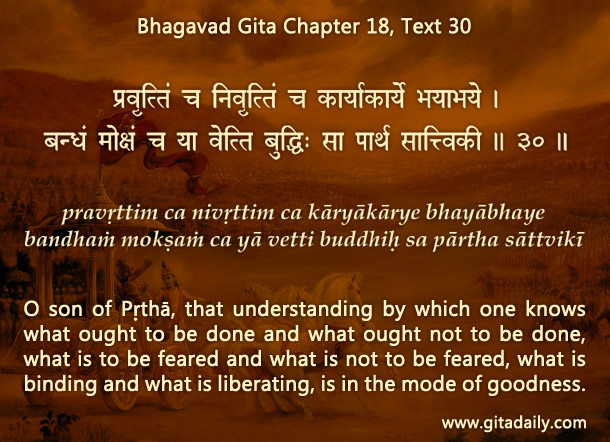When is fearlessness a facade for foolishness?- Suppose a child goes dangerously close to the parapet of a skyscraper. When his mother warns him, “Move away or you will fall down,” he retorts, “I am not afraid.” His mother won’t laud him for being fearless; she will lambast him for being brainless.
How can we know when we are being fearless and when foolish? By considering what we are doing and why. While doing our essential duties, if we face some danger and still push on, we are being fearless — as when police confront an armed criminal. Indeed, fearlessness is an essential virtue of society’s martial protectors (Bhagavad-gita 18.43). We all need the courage to persevere through danger; just how that courage is expressed constructively will vary according to our particular positions and professions. For example, during pandemics, medical care-givers need fearlessness to treat patients.
In contrast to such fearless dutifulness is the reckless rushing into danger to fulfill our lower desires. Those desires may be frivolous such as a child’s desire to peer down a skyscraper’s parapet wall. Or those desires may be malicious such as a thief’s desire to rob a bank — or, in the Mahabharata’s context, Duryodhana’s desire to steal the Pandavas’ kingdom. Though his elders warned him repeatedly that his unscrupulous schemes would end in his destruction, he rejected their warnings. He claimed to be fearless, but was actually being brainless and eventually ended up lifeless.
Pertinently, the Gita (18.30) states that good intelligence discerns which actions need to be feared and avoided, and which actions need to be fearlessly executed.
One-sentence summary:
To persevere in our higher duties despite being faced with danger is laudable fearlessness; to persist in our lower desires despite being warned about the consequences is lamentable foolishness.
Think it over:
- When is fearlessness essential and laudable?
- When is fearlessness a facade for foolishness?
- What are your fears? Are they deterring you from your duties or from your lower desires?
***
18.30: O son of Prutha, that understanding by which one knows what ought to be done and what ought not to be done, what is to be feared and what is not to be feared, what is binding and what is liberating, is in the mode of goodness.
To know more about this verse, please click on the image
Explanation of article:
Podcast:


Leave A Comment